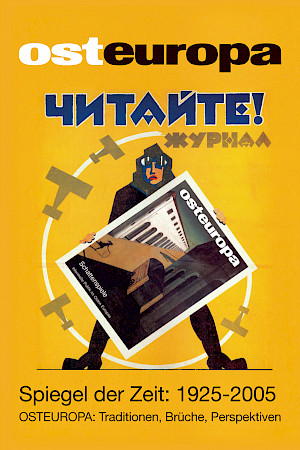An Inconspicuous Drama
The Journal Osteuropa under National Socialism
Deutsche Fassung
Abstract
To this day, there are files from the German Foreign Office in Moscow’s “Special Archive”. These records shed light on the work of the German Association for the Study of Eastern Europe and the journal Osteuropa between 1933 and 1939. After the National Socialists came to power, both the association and the journal were eyed with distrust. For Nazi experts on Eastern Europe, these were Weimar Republic institutions. Those responsible for the association, men such as Otto Hoetzsch, Klaus Mehnert und Werner Markert, let themselves be drawn into a balancing act between exercising their competences and conforming to the new rulers. The assumption that, as an “extension of the Foreign Office”, they would be immune to political attacks or compromising themselves proved an illusion. The association’s situation became increasingly precarious. Prominent representatives were driven into inner immigration or exile. Others paid for their conformity by becoming ominously close to sharing convictions held by the Nazis’ experts for Eastern Europe. The background to the association’s disbanding and the journal’s suspension in 1939 remains in the dark.
(Osteuropa 12/2005, pp. 57–86)



